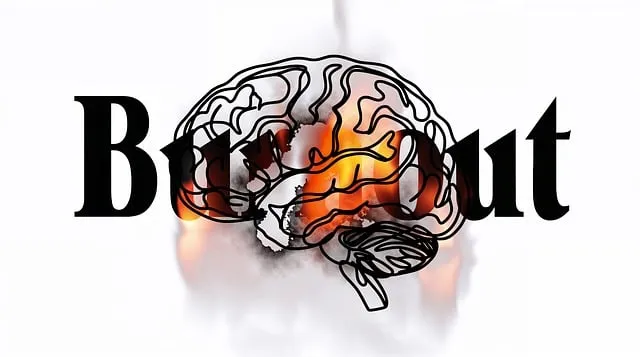Lone Tree's Kaiser offers comprehensive mental health services, including dedicated hotlines providing immediate crisis intervention and personalized support. Training in cultural competency and emotional intelligence ensures tailored care for diverse needs. Beyond hotline assistance, Kaiser provides long-term strategies like risk assessments, therapy, support groups, and coaching to empower individuals with tools for managing stress, anxiety, depression, and trauma, fostering resilience in modern life.
“In today’s fast-paced world, mental health crises can strike unexpectedly. Lone Tree’s partnership with Kaiser in providing mental health services offers vital support through dedicated crisis hotline support. This article delves into the significance of these hotlines, exploring how they function and their impact on those in need.
We’ll examine Kaiser’s role in delivering mental health care, what to expect when calling a crisis hotline, common challenges, and how Lone Tree enhances this support. Additionally, we’ll provide resources for continuous care beyond immediate assistance.”
- Understanding Mental Health Crisis Hotlines
- The Role of Kaiser in Providing Mental Health Services
- Accessing Support: What to Expect on a Crisis Hotline
- Common Challenges and How Lone Tree Can Help
- Resources and Next Steps for Continuous Care
Understanding Mental Health Crisis Hotlines

Mental Health Crisis Hotlines are essential services that provide immediate support and assistance during moments of intense emotional distress or psychological turmoil. These hotlines serve as a vital safety net for individuals experiencing a mental health crisis, offering a confidential and non-judgmental space to connect with trained professionals. They are designed to offer rapid intervention, ensuring folks in Lone Tree, where Kaiser has established mental health services, can access immediate care without the need for an appointment.
These hotlines play a crucial role in promoting stress reduction methods and self-awareness exercises, empowering individuals to manage their mental well-being. By offering education on various coping strategies, they enhance people’s ability to navigate challenging situations and foster resilience. Moreover, cultural competency training for healthcare providers is often integrated into these services, ensuring that support is tailored to meet the diverse needs of all individuals seeking assistance, regardless of their background.
The Role of Kaiser in Providing Mental Health Services

Lone Tree residents can access mental health services through Kaiser, a renowned healthcare provider known for its comprehensive approach to patient care. In times of crisis, Kaiser offers a dedicated hotline that provides Crisis Intervention Guidance tailored to individual needs. Their trained professionals are equipped with the skills to offer emotional support and practical solutions, helping individuals navigate challenging situations.
Beyond immediate assistance, Kaiser’s mental health services in Lone Tree encompass risk assessments conducted by qualified professionals who employ Emotional Intelligence to understand complex emotions and behaviors. This assessment plays a crucial role in developing personalized treatment plans, ensuring that patients receive the most effective care. Through these services, Kaiser aims to foster resilience and promote long-term well-being for those facing mental health challenges.
Accessing Support: What to Expect on a Crisis Hotline

When facing a mental health crisis, reaching out for help can seem daunting, but accessing support through a hotline is a crucial step in finding relief and recovery. Hotlines, like those offered by organizations such as Kaiser in areas like Lone Tree, provide immediate assistance and are designed to offer a safe, non-judgmental space for individuals in distress.
What to expect when calling a crisis hotline includes trained professionals who can offer guidance, empathy, and a listening ear. They are equipped to handle various concerns, from managing acute anxiety or depression to providing trauma support services and even offering resources for developing inner strength. Some hotlines also provide information on local mental health facilities or connect individuals with specialists, ensuring they receive the right care. Additionally, social skills training might be suggested as part of a comprehensive support plan, fostering better coping mechanisms in the future.
Common Challenges and How Lone Tree Can Help

Many individuals facing mental health crises struggle with feeling isolated and unsure where to turn for help. This is especially true when it comes to accessing specialized services, like those offered by a facility known for providing Kaiser mental health services – Lone Tree. The challenges are multifaceted; stigma surrounding mental illness often prevents people from seeking support, while limited access to resources can make finding the right care difficult.
Lone Tree steps in to address these common obstacles. Their comprehensive approach combines direct crisis intervention with long-term support strategies. Through dedicated professionals and innovative programs, they offer a safe space for individuals to navigate their mental health journeys. Services tailored to burnout prevention and mood management are particularly notable, aiming to equip folks with the tools they need to thrive in today’s demanding world. Lone Tree’s commitment to public awareness campaigns development further ensures that resources and hope reach those who need them most.
Resources and Next Steps for Continuous Care

For those seeking continuous care beyond initial contact with a mental health crisis hotline, Lone Tree’s Kaiser offers a range of resources tailored to individual needs. Their comprehensive services include therapy options, support groups, and specialized programs designed to address specific concerns such as depression prevention, anxiety management, and confidence-boosting strategies.
Next steps may involve connecting with a case manager who can facilitate access to ongoing therapy, medication management, or even referral to community resources. Lone Tree’s Kaiser also promotes mental wellness coaching programs that empower individuals with coping mechanisms and skills for long-term mental health maintenance. These initiatives ensure that support doesn’t end with the initial call but rather serves as a catalyst for lasting positive change.
Mental health crisis hotlines play a vital role in providing immediate support and resources for those in distress. As discussed, both Kaiser and Lone Tree offer crucial services, with Lone Tree specifically addressing common challenges faced by many. By understanding these services and the resources available, individuals can take proactive steps towards continuous care. If you or someone you know is struggling, remember that reaching out to a mental health crisis hotline is a brave first step, and organizations like Kaiser and Lone Tree are here to help navigate the journey towards recovery and well-being.






